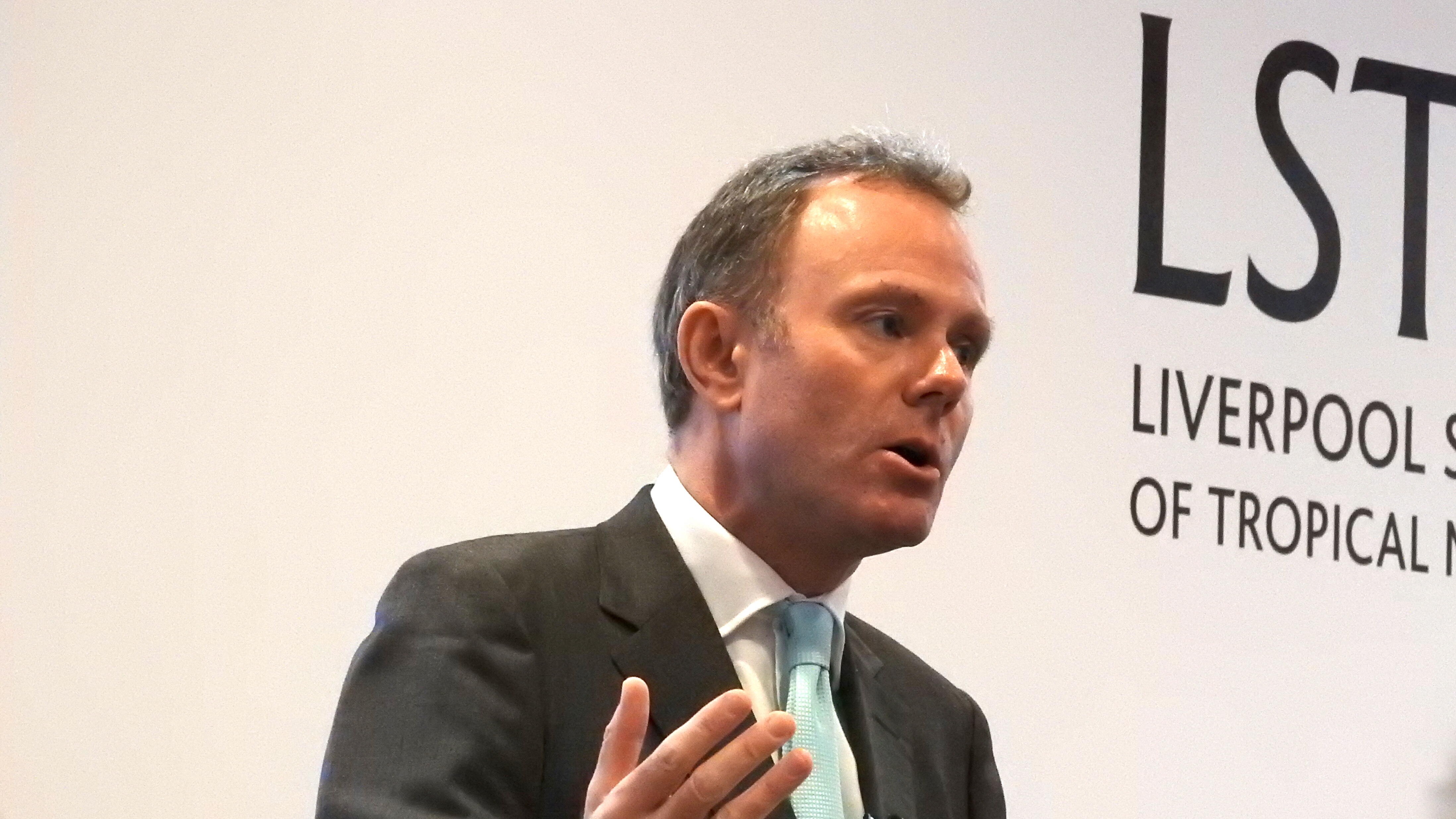
LSTM played host to the Co-Chair of the All Party Parliamentary Group for Global tuberculosis (TB), Nick Herbert MP as he came to deliver feedback from the recent UN meeting in New York, accompanied by three local MPs.
Welcomed to LSTM by Director Professor Janet Hemingway, the group also included MPs Angela Eagle, Dame Louise Ellman and Dan Carden. The visit included a tour of some of LSTM’s facilities used for research and drug discovery into TB, as well as a seminar from Nick Herbert entitled, Global Political Leadership to End TB: a report from the UNHLM. Following the seminar, the guests were invited look at some of the research carried out at LSTM, University of Liverpool and the Royal Liverpool and Broadgreen University Hospital Trust, in the form of poster presentations hosted by the LIV-TB cross-campus research collaboration, which told the story of TB from prevention to diagnosis through to treatment and beyond.
The seminar was introduced by LSTM’s Professor Bertie Squire who also introduced the local MPs as well as two NHS community TB nurses, along with a TB patient who was present with his wife, before introducing the Right Honourable Nick Herbert MP. During the seminar Mr Herbert talked through the history of the APPG-TB and some its successes including the setting up of the Global TB Caucus, which is now made up of over 2000 parliamentarians from 35 countries.
Organised by Professor Squire, who is also Director of the IMPALA consortium, and University of Liverpool’s Dr Tom Wingfield, the group then moved to the Royal Liverpool University Hospital where Dr Mike Beadsworth, Clinical Director of Tropical and Infectious Diseases Unit showed them where TB would be treated within the hospital.
Professor Squire said: “We were delighted to welcome the MPS, particularly the chair of the APPG-TB to LSTM. Engagement with politicians is vital if we are going to take a joined-up approach to ensuring that the research carried out here at LSTM and at the University of Liverpool, is able to impact on the global problem of TB.”